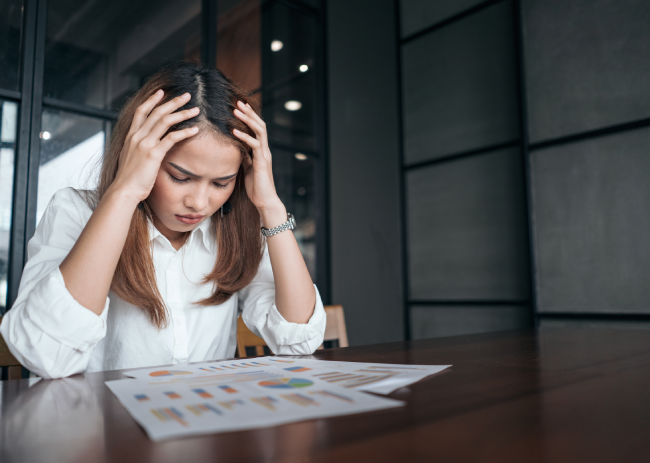Whether you have experienced anxiety in the past, or it is an entirely new experience for you, some information can help you cope, feel better and enjoy your life.
What Is Anxiety?
Anxiety is a normal human emotion to a trigger. It is something everyone experiences at times. You feel nervous, worried, uneasy, afraid, and stressed. You may show it physically through headaches, palpitations, low sex drive, stomachache, nausea, etc. Anxiety can affect your ability to sleep, think clearly, or concentrate.
When these symptoms of anxiety become extreme, they can debilitate daily living. It can be harmful to your general mental health, and even your physical health.
How Corona Virus Affects You Emotionally
While you can deal with an occasional bout of anxiety without much trouble, the anxiety you experience during the coronavirus outbreak can be entirely different. First, as the pandemic is a serious issue with no end in sight, your anxiety can be an ongoing problem for an extended period of time. Second, there are many factors that can contribute to your anxiety when you are faced with this pandemic.
One example is worrying that you might contract the virus. When you see stories in the news about people hospitalized or dying from coronavirus, you can start to panic. You may be afraid to go to work or school, visit friends or family members, or do routine errands. These fears can cause you to avoid people you care about and avoid leaving your home. If you become isolated, your anxiety can worsen.
A second example is worrying about your loved ones. You may not have imagined not visiting them for extended time periods. Whether they live nearby or far away, you are afraid they could become sick or die. You may hear stories of death and that gives rise to your own anxiety.
A third example is the coronavirus vaccine. As the pandemic is relatively new, so are the vaccines that have been developed. Even though you know you should get vaccinated, you worry about potential side effects.
Fourth, you may have financial concerns. As the pandemic has affected many people’s jobs, you may be worried about earning a living. Perhaps you are having trouble paying your rent or mortgage, other bills, and covering everyday expenses for yourself and your family.
While any of these concerns can lead to anxiety, a combination of concerns can cause an unhealthy degree of stress. Both your emotions and your body feel overwhelmed.
How To Manage Anxiety During This Outbreak
Fortunately, there are many ways you can minimize the effects of anxiety. When you start with some tips for managing anxiety during the coronavirus outbreak, you can be emotionally and physically healthier. Rather than feeling overwhelmed, you can address each of these concerns.
- Sensible precautions can reduce your fears of being around people and of leaving your home. The guidelines that were established when the pandemic began are important today, too. Wear a mask whenever you are around people, and when you go out in public. Stay at least six feet away from others. Wash your hands frequently. Avoid places where there are crowds of people not wearing masks.
- Stay in contact with your loved ones regularly. This includes friends as well as family members. If you cannot visit in person, make phone calls, send text messages or emails, or use video chats. When you stay connected with people you care about, you will know they are healthy and safe. It will also reduce your own feelings of isolation.
- It is only natural to worry about vaccines that have not been available for a long time. Instead of listening to gossip, or risking misinformation on the internet, talk to your personal physician. You can also obtain accurate information from your local pharmacist. When you know which available vaccine is right for you, obtaining a vaccination can increase your sense of security.
- It can be difficult to cope with financial worries, but it is possible to make some changes. If you have never developed a budget, this is a good time to take that step. Start with the income you can count on each month. Deduct the regular bills you have each month. Deduct a reasonable amount for other expenses, such as school supplies and clothing. Allot a percentage of your monthly income for savings. You can look for additional ways to make money, too. You can hold yard sales, offer services to neighbours, or search for legitimate job opportunities on the internet. The extra money can stretch your budget, and reduce your financial concerns.
- Take time to relax. When you relax and unwind, it lessens the impact of anxiety. Read a book, watch some favourite t.v. shows, or treat yourself to long bubble baths.
- Focus on your health. Anxiety can cause psychosomatic problems, so it is important to develop a healthy lifestyle. Create a balanced diet, and eat three nutritious meals each day. Make a point of getting eight hours of restful sleep each night. Make time each day for exercise, even if you have a busy life. Your mental health is important when you want to manage anxiety. Do activities that keep your mind sharp, such as word games, board games, or puzzles. Take up a hobby that is fun and interesting.
- Be good to yourself, and to the people in your life.
- Never self-medicate. Even if your anxiety is severe, do not try to cope with it by drinking or using drugs. If you feel tempted to self-medicate, reach out for help instead. You can contact your personal physician, and he or she can recommend a counsellor or therapist. Often, though, all you need is to contact a trustworthy friend or family member. When you talk to someone you trust, it can reduce your worries and fears.
Takeaway
The coronavirus pandemic is stressful for everybody. It can be worse when you know it is not going to disappear anytime soon. When you start with these tips, it can greatly reduce the feeling of being overwhelmed. Instead of being immobilized by anxiety, you can live your everyday life.
Reena Goenka is an author of the Insightful Counselling and Training blog. She is a caring Mother, an understanding counselor, a healing therapist, a whiz consultant, an expert trainer, and a brilliant writer, holding expertise in Mental health, Psychotherapy treatments, Emdr therapy, and Professional Counseling.

